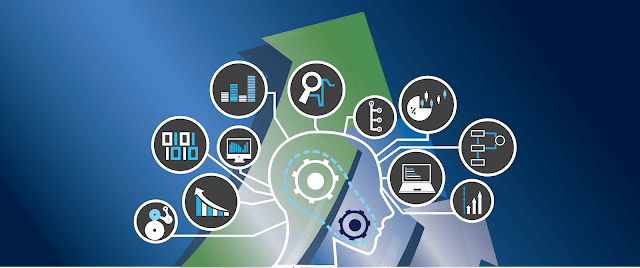In today’s global mobility-adept marketplace, the integration of Enterprise Resource Planning (or ERP) with business operations is as critical as the central nervous system to a human body. And the benefits of an ERP implementation into your business processes are numerous – from accounting, compliance and human resources to reporting, supply chain, IT sales and customer management systems. In short, if executed right, ERP is the best investment for your company as it helps to better manage responses, through the coordination of the company’s resources for winning customers, fend off competitors, and moderate costs. That’s why it is wise, for an organization, to rely on its ERP systems, every day.
Here are the top 12 advantages of implementing a healthy and successful ERP system:
- Sustains growth without incurring any additional workforce resources
- Improves the availability of products
- Ensures on-time delivery
- Reduces expedited cargo expenditures
- Curtails month-end close time
- Augments inventory turns and diminishes variances
- Decreases monthly shipping errors to zero
- Restricts cost of maintenance via centrally-managed, single-point system
- Reduces time for repair
- Reinforces traceability for ISO compliance
- Enhances accountability across all business levels
- Strengthens internal, as well as, customer communications
However, an appalling dependency on technology without being fully aware of its repercussions and a complete lack of planning or technical know-how may lead to the complete failure of ERP implementation forcing you to deal with the expenditure, post-implementation. Also, transitioning to a new ERP system may become an expensive affair. What is supposed to be a cost-effective plan can quickly turn into a costly nightmare!
Most executives, during an ERP implementation, typically ignore crucial steps that involve assessment of risks, cash flows, benefit analysis, and performance goals. Instead, they choose to focus on decreasing implementation costs, hoping that the ERP system is a magical medium for transforming the efficiency and operations of the business. Eventually, when faced with unexpected set-backs, owing to unrealized benefits post-implementation, most corporate regret the decision of empowering the ERP system.
As the adage goes, “technology should be controlled by humans, and not the other way, around.” So before you decide to take the plunge, here are the top 6 reasons to understand why ERP implementation fails:
There is no greener grass on the other side; the sooner you realize the better it gets. Managements that wonder the requirement of an ERP implementation often ask the wrong questions. They are more worried about the costs, which eventually, impairs their ability to assess the risks and benefits involved. And that’s exactly why most ERP implementation projects crash, even before they set off. Rather than embarking on a large, risky, and expensive ERP planning, it is imperative to assess the current situation, consider the pain-points, and check the need for fine-tuning of the existing ERP system, thereby, addressing the problem at a fraction of the cost.
An ERP implementation isn’t a process that should be embarked upon in haste, especially when it is about in-depth training that provides access to a great understanding of the tools which offer a comprehensive automation of most departments. Devoting the right amount of time for collecting the proper knowledge of the process of ERP implementation ensures the optimal usage of the system.
The implementation of a solid ERP system is a long-term investment which if carried out correctly is sure to yield profits in the extended future. So, while choosing the right vendor, for the implementation process, instead of focusing on lower costs, try to assess their capability of delivering such a project.
An ERP implementation process may fail if you are unprepared for the impending change, after the deployment of system. Make sure that you have a plan for helping your organization adapt to the changes that will only prove to be optimal in the end.
In order to maintain credibility of your ERP system with the end-users, ensure the accuracy of data transfer into the new ERP system. This will help to save on time and any cost implications, eventually, resulting from a failed ERP implementation.
Another critical thing that could lead to the failure of ERP implementation are hardware snags, interfacing issues with the management process, or any other technical glitches. Make sure that your IT integration team is efficient for handling such situations.
There can be a number of reasons apart from those discussed here that could lead to the failure of an ERP implementation. And it is a long-term process: if dealt with incorrectly could end up with an undesired experience for you that may involve greater cost implications and severe technical difficulties. Entrusting an expert to drive the implementation process could help to deliver a relatively easier roadmap for success.


